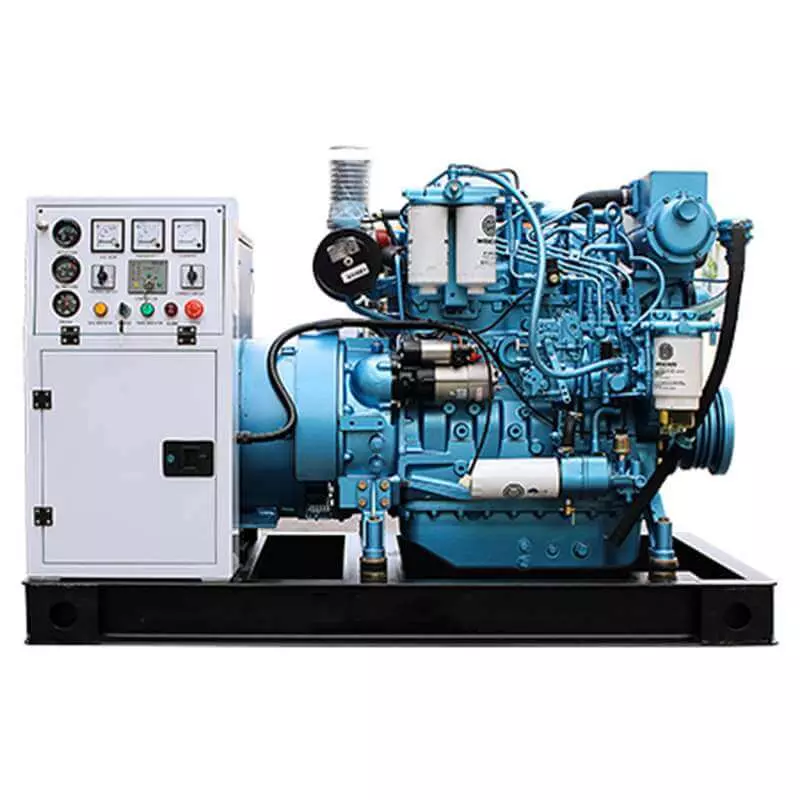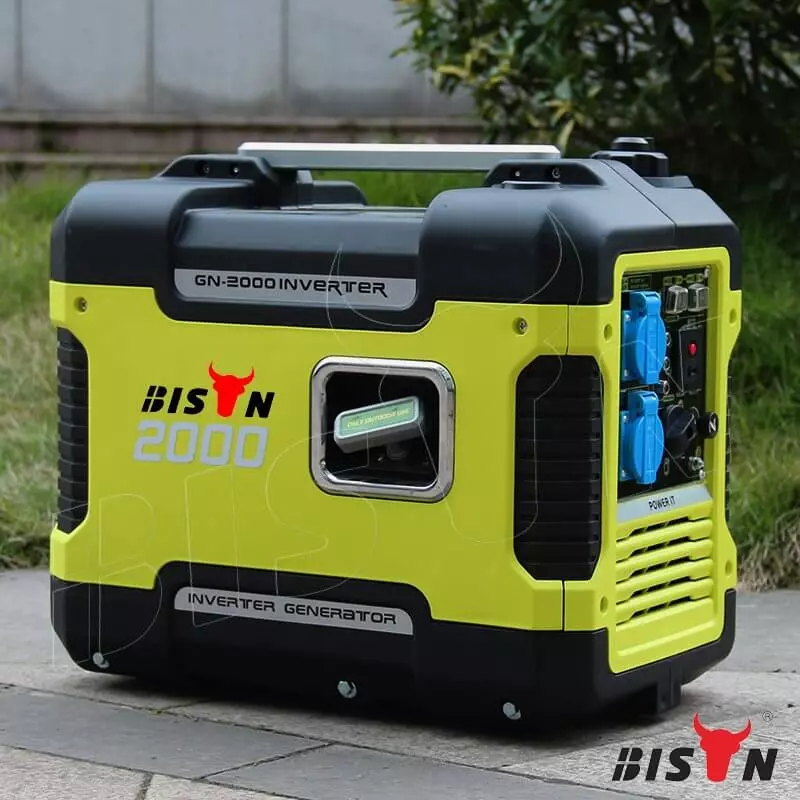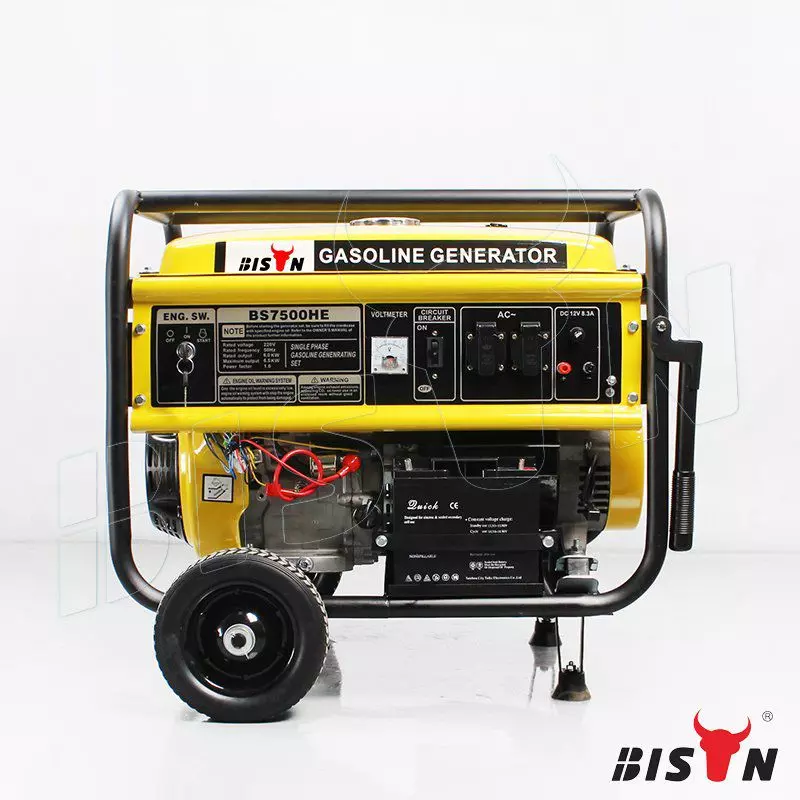How to store a generator (Easy and practical generator storage tips)
2023-02-17
Table of content

Generators are a must for homes and businesses no matter where you live. Due to unpredictable weather and violent storms, generators can be the key to keeping your home or business functioning and safe during a power outage.
However, generators aren’t something you’ll be using all the time. Because of this, it’s critical to understand how to safely and effectively store your generator when it’s not in use so that you can use it the following time you need it. In this post, we’ve shared easy and practical tips for storing a generator.
Let’s get started!
Tips for short-term generator storage
If you want to store your generator for 30 days or less, then it’s a straightforward process. All you need to do is basic cleaning and maintenance procedures, which include:
Machine dust removal
Remove old grease
Clean any debris or dirt
Look for loose bolts or burnt wires
Check your unit, fuel tank, wheels, etc.
Fill up the fuel tank after the generator cools down.
If you know you’ll be using your machine for the next 30 days, then you don’t need to do anything extra.
Tips for long-term generator storage
Please read the guidelines below if you need to store your generator for more than 30 days. All you need to do is follow these steps:
Drain your fuel tank
Take your generator to a well-ventilated area. Close the manual fuel shut-off valve. Use a siphon pump to completely empty your oil tank and store your gasoline in a suitable can. Don’t forget to close the lid on the generator tank after emptying.
Keep gasoline away from the house in a place that is well-ventilated. The location should be protected from the summer sun’s heat to minimize evaporation. Do not keep gasoline in the utility room. If you don’t have a suitable fuel storage area, consider building a cabinet for storage outside your home or purchasing an available flammable liquid storage cabinet available from a security equipment supplier.
If you’re not going to use the gas for a few weeks, add a fuel stabilizer to it. Fuel stabilizers act as antioxidants, preventing fuel separation.
But be careful, you need to pay attention to the fuel type of your generator. Each has a different storage method. For example, you might need to empty the tank for a gasoline generator, but probably not for propane.
Drain the carburetor
This step is very straightforward. Start your generator. Let it run until it stops due to lack of fuel. This will burn off any remaining fuel left in the fuel line.
Add oil to the cylinder
The last step before storing the generator for an extended period of time is to shut down the machine and disconnect the spark plug wires.
Then, remove the spark plugs and add about 2-3 teaspoons of new oil to the cylinder.
After adding the oil, you’ll need to cover that opening with a clean carpet or rug to catch any oil that may have spewed out and to get the oil all over the piston rings and cylinder bores, pull the generator's recoil starter a few times.
Once done, you can reinstall the spark plugs and reconnect the wires.
If you decide to disregard our advice and store your equipment with the fuel inside the generator, fill up your fuel tank as directed in the owner’s manual, and stabilize your fuel with a stabilizer to ward off corrosion and clogging.
Also, don’t forget to let your generator run for a while to burn off any untreated fuel that may have been left in the carburetor or fuel line, and then refill your tank again.
Clean it thoroughly
Dust off the machine and clean all debris and dirt with a soft-bristle brush. Also, use a clean cloth and degreaser to remove old grease and dirt that may have accumulated on the surface.
Keep in mind that leaving dirt, grease, or oil on the generator can cause various seals and switches to corrode.
Where should I store my Generator?
Once you are ready to store the generator, the next thing to consider is where to store it. During storage, you’ll want to keep your generator safe and secure. It should also be easily accessible in an emergency. You can store your generator in a dry, cool place. It is best to keep it away from any actual or even potential sources of ignition or heat. It is best to store generators in tight spaces. Some of the best generator storage places are
Outdoor shed
An outdoor shed would be an excellent option for someone who doesn’t want to store their generator away from home. However, it is not ideal in winter as cold weather can damage the generator or interfere with its performance.

Garage
One of the most common places for people to store their generators is in their garages. Garages provide optimal protection for generators, provide a temperature-controlled environment, are protected from external factors, and are accessible.
Enclosures
Generator enclosures are a great option for those looking for something between a garage and an outdoor shed. It has good ventilation, enables you to keep the generator outside the garage, and shields it from dust, debris, and moisture.
FAQs about storing a generator
Can you store your generator in your house?
No, because it’s a high risk, especially if there’s gasoline in the generator. You might think it might be safe to store your generator in a basement, but that’s not always the case. In addition to the fire risk, generators produce harmful emissions that leave a strong gas smell around. Most homeowners don’t like to store a generator in the house, especially if you have kids at home.
How long can you store gas in a generator?
Typically, the fuel will last about a year in a generator, but not always, as sometimes it can become contaminated for more than a month. You should stop using the generator and seek professional assistance if you see that the gas is separating and sinking to the bottom.
Other signs of fuel contamination to look out for include deposits in the fuel, gum formation, varnishes, and signs of oxidation. The longer you leave contaminated fuel in the generator, the more damage it will do.
Is it better to store a generator with or without gasoline?
For long-term storage, you will need to empty your fuel if possible. For short or medium storage periods, whether to empty the oil tank depends on:
Fuel type
Use of fuel stabilizers
What amount of fuel is still in the tank
Climate and storage conditions
Conclusion
Properly storing a generator when not in use can seem complicated, but it’s pretty straightforward once you get the hang of it. Following the method, tips, and solutions discussed above will help you significantly extend the life of your generator while ensuring it will work when needed.
Still, have questions?
Contact our team online or call us today to get answers to your generator questions. BISON is here to help. We provide a variety of generators for both residential and commercial use. We’d love to help you find a generator that suits your needs.




